Fertilizing plants in winter is generally considered a no no, but there are some instances when it’s beneficial to feed plants during the winter months.
In this article I’ll tell you which plants can be fertilized in winter and how to dilute your fertilizer so that it doesn’t burn your plants.
This post contains affiliate links. Please read the disclosure for more info.
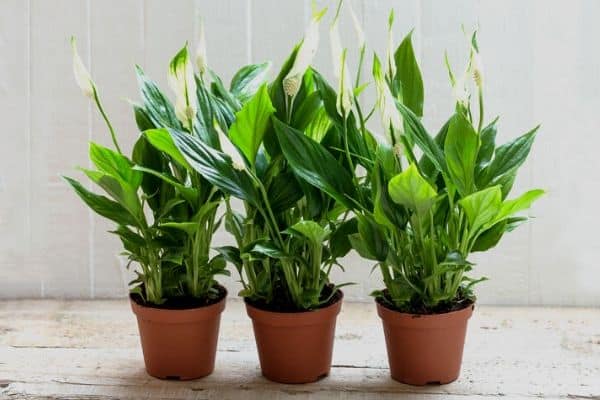
Many people think that plants don’t need fertilizing in winter, but that is not always true.
There are many plants that will benefit from winter fertilizing as long as it’s done in the right way.
Before adding fertilizer it’s a good idea to check your soil to see if it’s deficient in nutrients.
Use a soil test kit to check phosphorus, nitrogen and potash levels as well as the soil pH.
FERTILIZING PLANTS IN WINTER
Indoor plants
Whether you choose to fertilize houseplants in the winter or not depends on the type of potting soil and the frequency of watering.
Houseplants in mild winter climates or plants that are situated next to a window with lots of bright sunlight will need watering more often which means the nutrients will get flushed out of the soil more quickly.
If you’re watering your indoor plants a couple of times a week during winter then it’s ok to use a weak fertilizer solution that is diluted by at least 50%.
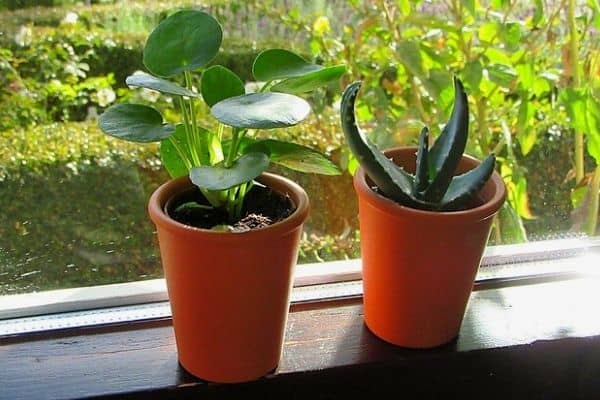
Once the weather warms up and you begin to see new growth you can increase your feeding.
Any houseplants or succulents that you’re watering once a week or less during winter won’t need to be fertilized during the winter months.
Bulbs
Late winter blooming bulbs like snowdrops, daffodils and jonquils can benefit from fertilizer over winter.
Fertilizing bulbs in winter helps to promote strong growth and more blooms.
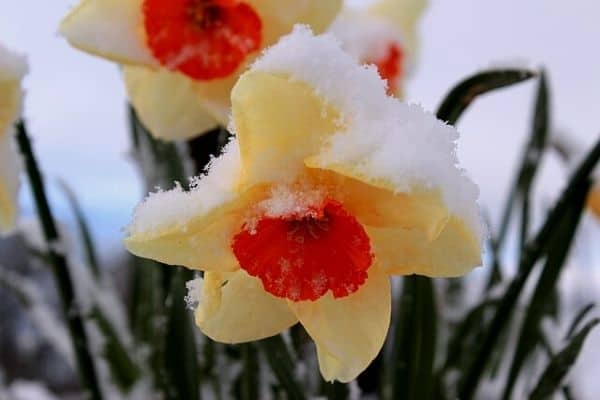
Vegetable garden
At the start of winter you can add a slow release 10-10-10 fertilizer to your vegetable garden.
This type of fertilizer contains 10% potassium, 10% nitrogen and 10% phosphorus and it will slowly release the nutrients into the soil. [1]
Dig the fertilizer through the soil and then cover the soil with a thick layer of mulch.
Trees and shrubs
Deciduous trees and shrubs become dormant during the winter months so it’s best to hold off on fertilizing until spring when the new growth starts coming through.
At the end of fall I like to add a thick layer of mulch around my trees and shrubs.
The mulch helps to keep the soil warmer during winter and the mulch provides nutrients to the soil as it breaks down.
Dry leaves and lawn clippings are great for mulching around shrubs and trees.
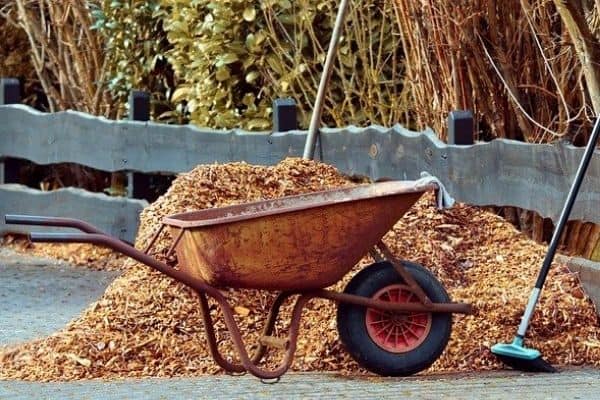
Choosing a winter plant fertilizer
During winter it’s best to use a fertilizer that is lower in nitrogen and higher in potassium, which helps the plant to stay healthy and strong during the winter months.
If the plants receive too much nitrogen during winter it can cause the leaves to become softer and more susceptible to disease.
In the spring you can switch to a fertilizer that is higher in nitrogen.
When to fertilize plants in winter
It’s best to apply fertilizer to your plants in the early morning to reduce the risk of fungal diseases.
If you’re using liquid fertilizer, dilute it with 50% water and apply it directly to the soil, taking care to avoid wetting the leaves.
Don’t apply fertilizer to your plants if there is snow on the ground or if the ground is still frozen.
So there are my winter fertilizing tips for gardeners.
Fertilizing your plants at the right time will ensure that they have the best chance of thriving and staying healthy during the winter months.
Do you fertilize your plants in winter? Let me know in the comments below.
RELATED ARTICLES
Are you on Pinterest? I have boards dedicated to Urban Gardens and Gardening Tips that you may enjoy. You can also find me on Facebook.

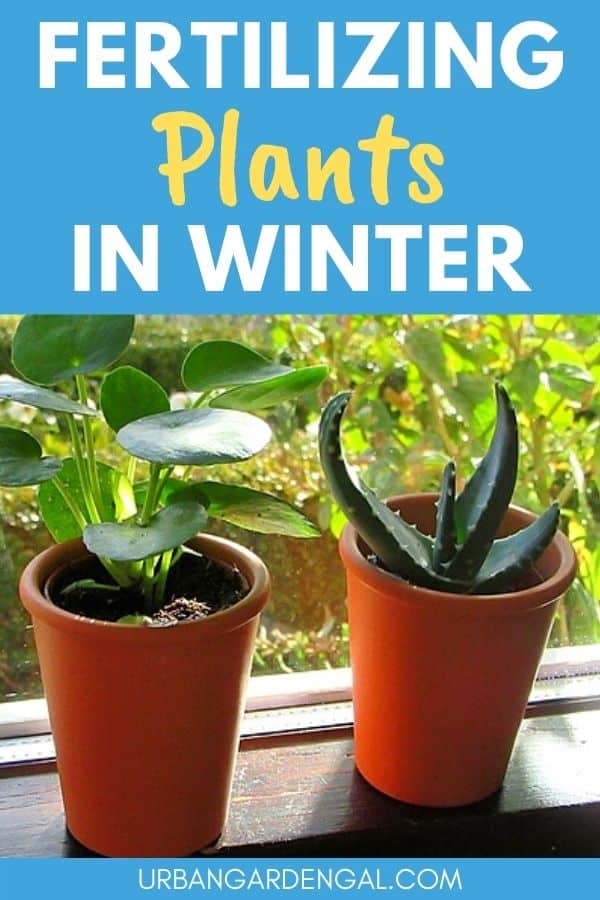
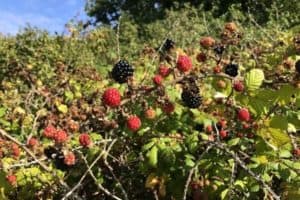
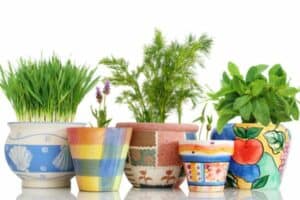
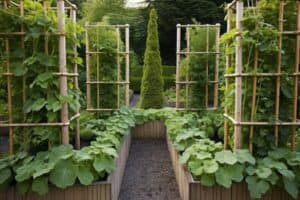

Thank you so much for this post. I think I may have given one of my shrubs the wrong fertilizer treatment last year. It actually ended up needing to be pulled due to it turning completely yellow. Since then I managed to do some research and find out what I may have done wrong. I went ahead and saved this post.
Interesting – I have never fertilised a plant before. My mother has a huge garden, but she mostly just uses manure and leaves the plants to their own devices, and I’ve only been taking care of plants for a few months, so I don’t have any experience with it. I guess my house plants will need some fertiliser at some point, as the soil is always the same, not like with outdoor plants.
I could always use more gardening tips! I love plants, but I am bad at helping them stay healthy and alive so tips like this are great.
I’ve just become the owner of some house plants and i have very little knowledge on whats best for them. This post has come in really handy. Some useful information here to guide me on what to do next.
I had no idea there were good ways to fertilize plants during the winter months! I was always taught no. Like straight across the board, just no. Don’t do it. Don’t even think about doing it. Even thinking about it will have consequences. Lol. Clearly people didn’t know how to do it or which plants would benefit from fertilization during the winter. This is a goldmine of information for keeping plants healthy.
I have always watered plants during the winter but it was good learning more about the benefits of winter fertilizing and how to do it.